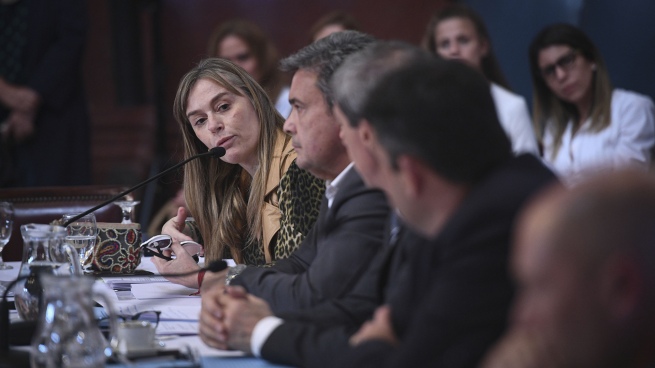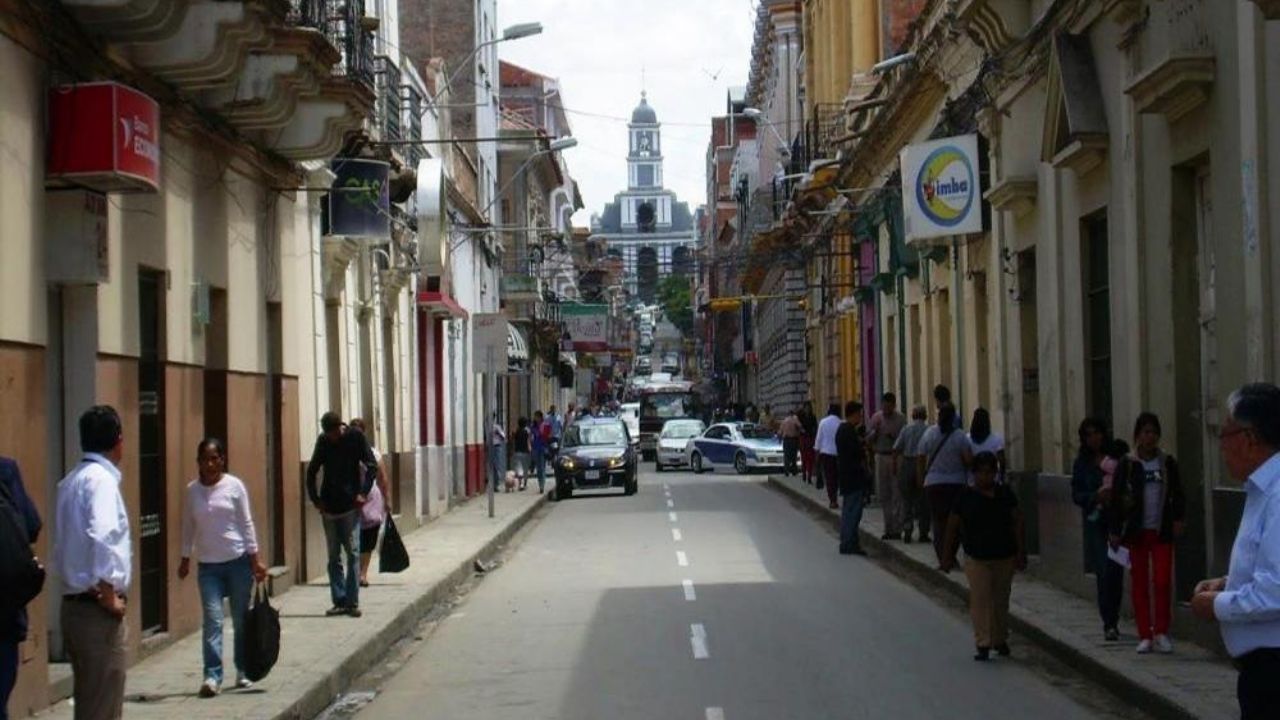A new meeting of the commissions of General Legislation and Budget and Treasury of the Senate will take place this Wednesday to discuss projects What do they seek pay the debt contracted with the International Monetary Fund (IMF) with funds of Argentines who were escapeds abroad.
The meeting is scheduled for 2:00 p.m. and parliamentary sources indicated that there could be an opinion if there are any changes, as analyzed on Tuesday after a meeting with specialists.
The exhibitors were contributed by the ruling party and the opposition and motivated the authors of the project, promoted by the Front of All (FdT), to admit the possibility of including modifications.
This was stated by the senator for the province of Buenos Aires, Juliana Di Tullio, and her bench partner, Oscar Parrilli from Neuquén.
The Buenos Aires senator revealed that the intention of the project, which aims to charge a fee on property that has escaped abroad, is that “it is not an excuse for money laundering for the commission of aberrant crimes”.
Parrilli expressed himself in the same sense, who listed a series of changes to the text that could be dictated.
“We are going to expressly clarify in the text that the only illicit activity that the law exempts is in the criminal tax issue and tax evasion. Money laundering, drug trafficking, human trafficking, smuggling, terrorism and others,” he listed.
“We are going to expressly clarify in the text that the only illicit activity that the law exempts is in the criminal tax issue and tax evasion. Money laundering, drug trafficking, human trafficking, smuggling, terrorism and othersoscar parrilli
He added that the collaborator must “give information that is truthful, reliable, forceful and sincere” and that he will not go to the AFIP to make the complaint, but to the Ministry of Justice, which will create a special office.
He warned that false information provided by a collaborator will be considered a crime; that the minimum amount to report is $500,000 and that lawyers, notaries and accountants are exempted from being whistleblowers.
The participation of the legislators of the Frente de Todos took place when Jimena de la Torre, a lawyer specialized in taxes and fiscal policy, ex-adviser in the Ministry of Finance in the drafting of the Law of Fiscal Honesty and recently elected to integrate the Council of the Judiciary.
“This is a tax because it has a tax base, a passive subject and an active subject. The name they give it is not important,” explained De la Torre.
Rejecting part of the project, he expressed that “the most worrying thing is that we are turning the National State into a vehicle for money laundering. The origin of the funds is fundamental. This project says that we are not going to review it,” said De la Tower.
Previously, the doctor in Social Sciences of the UBA Pablo Manzanelli strongly questioned the indebtedness during the Government of former President Mauricio Macri, recalling that it was “the highest amount since 1976”.
“The current government carried out a restructuring that should have been more aggressive because in the best of cases we postponed the payment of the debt until the mid-20s,” he said.
In addition, Manzanelli mentioned that “if one does not want to make an adjustment, it is necessary to deploy initiatives that seek to solve this great problem.”
“This project could contribute in that sense. It will not necessarily solve it,” he said.
For his part, public accountant and finance specialist Andrés Edelstein affirmed that “this is money laundering” and, dissatisfied with the project, added that “it is not opportune because in the last thirteen years there have been four regimes of these characteristics.”
“These regimes are implemented when the taxpayer’s perception of risk increases. For example, when an information exchange agreement between countries is about to be entered into. Or when convenient circumstances arise when investments are made,” he described.
Constitutional lawyer Eduardo Barcesat stressed that “the Constitution establishes that it is up to Congress to settle the nation’s foreign and domestic debt.”
“Tackling the issue of capital flight in order to attend to the settlement of the external debt is a norm that the provinces must value because they release the burden of all the wealth that does not enjoy any benefit and is exposed as a guarantee of the repayment of debt,” he asserted.
And he supported the figure of the collaborating subject who would provide the State with information on where the money that escaped abroad is.









